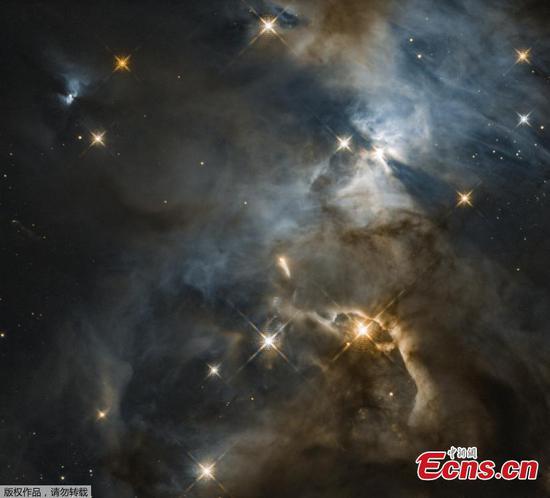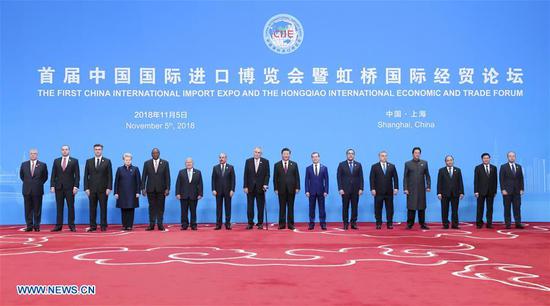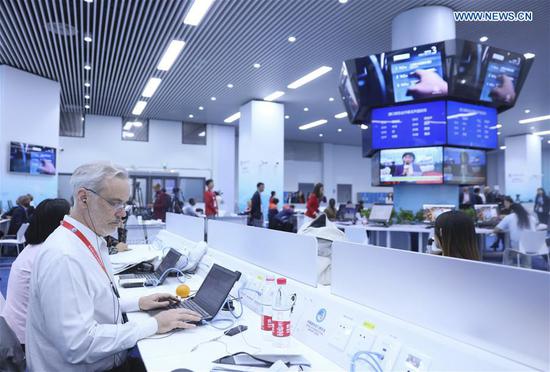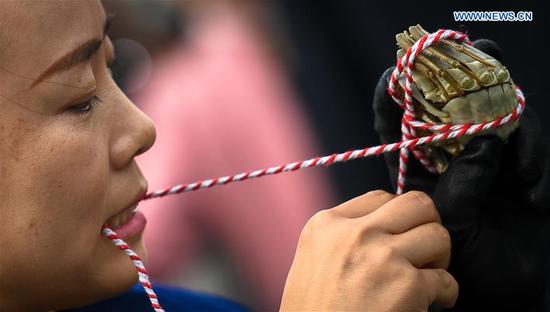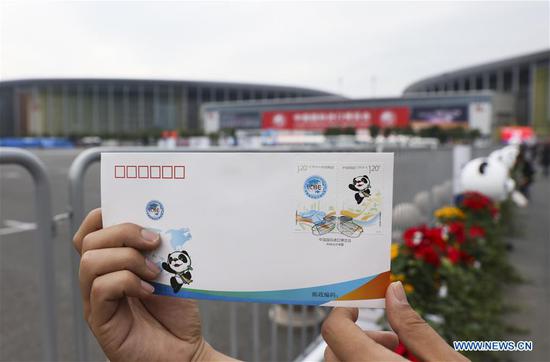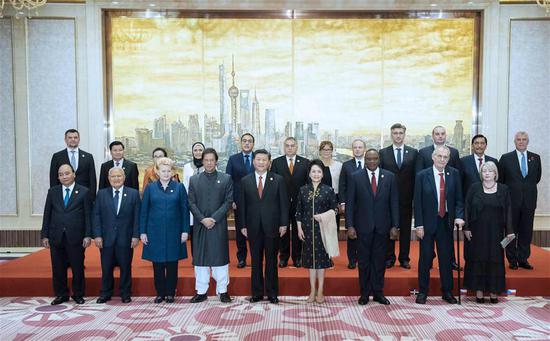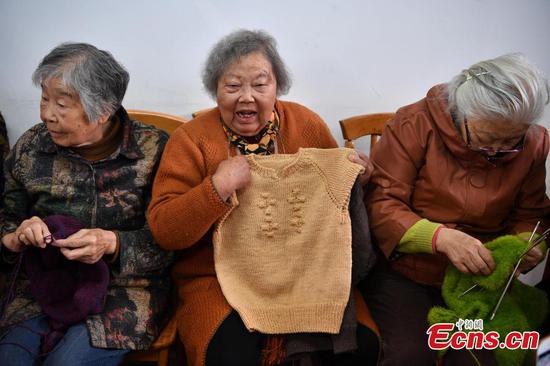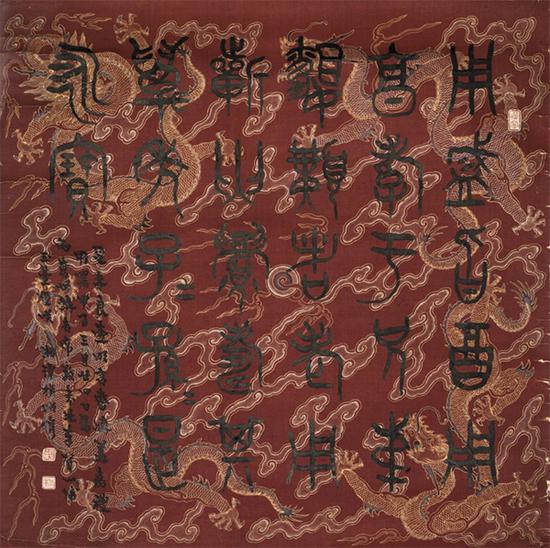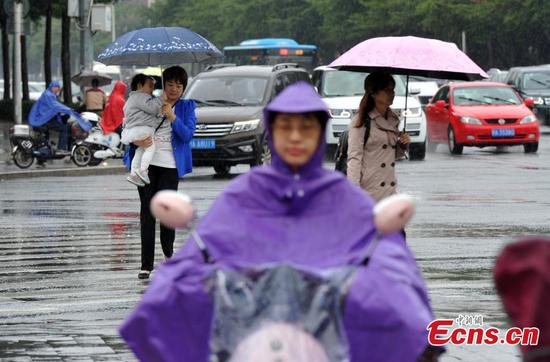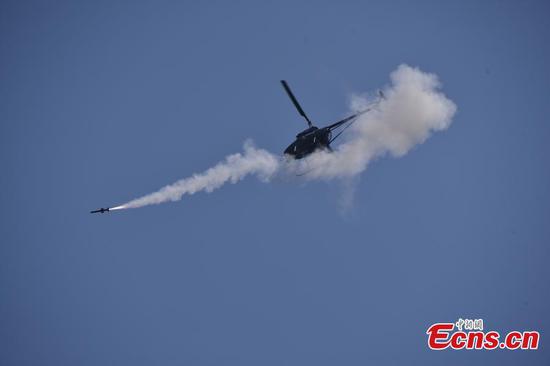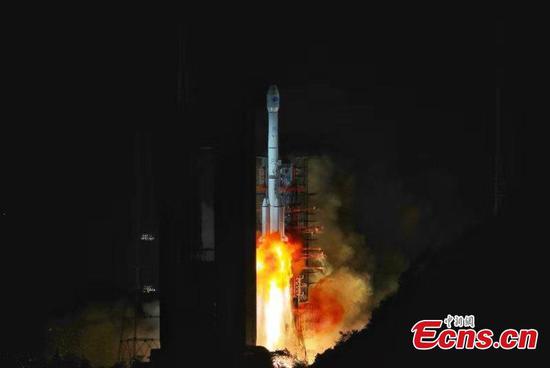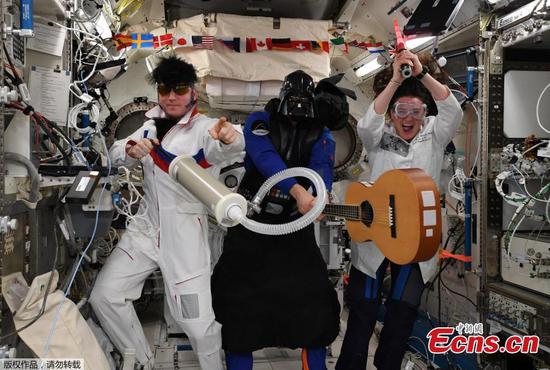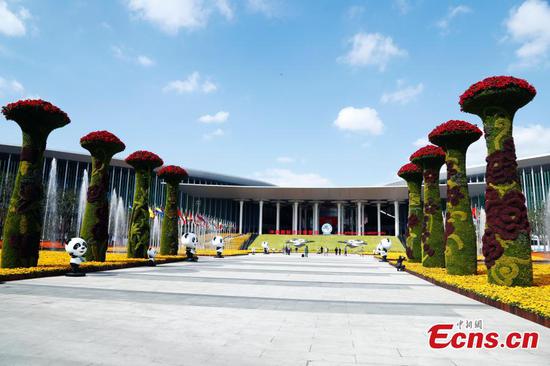Beijing included in Washington's exemption list
While reaffirming opposition to unilateral sanctions, China said on Monday that it will continue to hold a fair, objective and responsible attitude and resolutely safeguard its legitimate rights after the U.S. sanctions against Iran came into effect at the same day.
The sanctions, the second batch of its kind, target Iran's shipping, financial and energy sectors, according to the U.S. administration, the Xinhua News Agency reported on Saturday.
"China feels sorry for the U.S.' decision and we noticed that the international world as a whole opposes the practice of such unilateral sanctions," Chinese Foreign Ministry spokesperson Hua Chunying said at a daily briefing on Monday.
Iran has been seriously fulfilling its obligations under the Joint Comprehensive Plan of Action (JCPOA) and its efforts have been recognized by the International Atomic Energy Agency 12 times, said Hua.
Hua noted that China will firmly safeguard its lawful rights while continuing to adhere to JCPOA. She also urged relevant parties to stand on the right side of history.
The sanctions may cause fluctuations in oil prices and Chinese companies should pay attention to the risks generated by price changes, Mei Xinyu, a research fellow at the Chinese Academy of International Trade and Economic Cooperation, told the Global Times on Monday.
Mei said that some Chinese companies are also taking protective measures to prevent being hurt by the sanctions.
The Bank of Kunlun, a subsidiary of China's largest petroleum producer China National Petroleum Corporation, informed its clients that it will stop handling yuan-denominated Iranian payments to China from November 1, Reuters quoted sources as saying on October 23.
The bank didn't respond to a Global Times interview request as of press time.
China is not worried about being seriously impacted by the U.S. sanctions on Iran, Mei said.
China is experienced in protecting the legitimate interests of its companies that have business in Iran, when the country was under sanctions, Mei noted.
Exemption 'rational'
The U.S. has granted exemptions to eight countries and regions allowing them to temporarily continue buying Iranian oil, U.S. Secretary of State Mike Pompeo announced on Monday. The list includes China, India, Greece, Japan and South Korea, Reuters reported.
Chinese experts noted that the exemption was an expected and rational decision.
The U.S. faces great pressure from its allies and other countries after imposing the sanctions, because many countries could not find alternatives on short notice, He Wenping, a research fellow at the Institute of West Asian and African Studies of the Chinese Academy of Social Sciences in Beijing, told the Global Times on Monday.
She said that the exemption is also a goodwill sign sent to China from the U.S. side, as it shows the U.S. is taking China's interests into consideration, rather than letting things come to an impasse and worsening the bilateral ties.
Since China is Iran's biggest oil buyer, the exemption means China and Chinese companies will suffer less from the sanctions, Tian Wenlin, a research fellow in Middle Eastern studies at the China Institute of Contemporary International Relations in Beijing, told the Global Times on Monday.
"Our cooperation with Iran is legitimate economic cooperation and the U.S.' sanctions are illegal. We don't have to follow the U.S.' conduct and we should strive to protect Chinese companies' legal rights in Iran," He Wenping noted.
Zhu Weilie, a Middle East expert at the Shanghai International Studies University, told the Global Times on Monday that if the U.S. pushes Iran too far, it's possible Iran will blockade the Strait of Hormuz and the Persian Gulf, risking serious conflict.
The U.S.' long-arm jurisdiction in Iran not only creates a messier situation in the Middle East, but it also hurts other countries that have normal business relations with the country, according to Zhu.
He warned that the U.S. may achieve short-term results from the sanctions, but it will pay a price in the long run.









